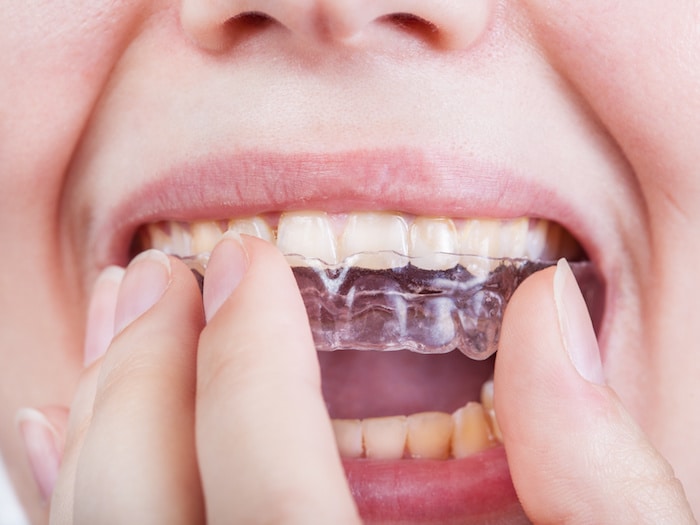Top 5 Side Effects of Teeth Grinding

The dental condition known as “Bruxism” refers to the involuntary grinding and clenching of teeth, a problem that affects a significant number of patients. This condition is often linked to heightened levels of stress and anxiety, manifesting as a nighttime habit while you sleep—often without your conscious awareness. However, it can also become a recurring issue during the daytime as well.
Bruxism can lead to a range of adverse effects, including damage to your teeth, jaw discomfort and complications with existing dental work. It’s crucial to monitor these symptoms closely, as they can gradually worsen and impact your oral health.
By scheduling regular dental checkups at Studfield Dental Group in Wantirna, you enable our team of professionals to identify any early signs of bruxism. This proactive approach allows for timely interventions and tailored support, helping you protect your smile and achieve optimal dental health.
Some common side effects include:
- Worn Teeth
If left untreated, your teeth will start to show the effects of grinding. If your teeth look shorter than they once were, you may be clenching and not even know it. Flat or very sharp and jagged teeth are common signs. If this continues, the nerve inside your teeth can become exposed, causing severe pain.
- Sensitive Teeth
As your teeth wear down from grinding, you will begin to experience cold sensitivity. The outer layer of the tooth is called enamel. Once this surface is gone, the inner layer, or dentin, is exposed. Dentin is not meant to withstand different temperatures and can be extremely sensitive to the cold.
- Headaches
Teeth grinding can trigger headaches and pain due to the constant pressure and stress on your teeth. Morning headaches are very common in people who clench and grind at night. However, this can occur at any time during the day.
- Jaw Pain
Your jaw muscles aren’t designed for constant clenching. Bruxism can lead to jaw pain and stiffness. The jaw joint (TMJ), which is located next to the ear, may hurt when moved or touched.
- Earache
Bruxism can even extend its reach to your ears. Grinding and clenching can lead to earaches and discomfort. Since the jaw joint is so close to the ear, an earache is also very common.
Treatment Options for Teeth Grinding
Here’s a list of treatment options that can help you nip this habit in the bud and preserve your oral health.
- Mouthguards
Consider a mouthguard to minimise the impact of grinding during sleep. They are custom-fitted to provide a protective barrier, to give your teeth a peaceful night’s sleep. - Stress Management
Since stress is a common trigger, finding healthy ways to manage stress can be a game-changer. Whether it’s yoga, meditation, a nightly stroll or anything that helps you unwind and relax. - Medication
In some cases, muscle relaxants or medications that address underlying issues contributing to bruxism may be prescribed. - Dental Splints
Dental splints are similar to night guards. These removable devices create a barrier between your upper and lower teeth. This prevents the wear and tear that comes with grinding. - Regular Dental Checkups
Regular dental checkups are preventative maintenance. Our professional dentists can monitor the impact of bruxism, and offer guidance on treatment options.
Teeth grinding may seem like a minor issue, but its effects can be extensive and harmful. From tooth damage and jaw pain to headaches and gum recession, bruxism can have a significant impact on your oral health and overall well-being. If you suspect that you are grinding your teeth, it’s crucial to consult your dentist. SDG Dental in Wantirna is open on Saturdays for your convenience. Call us today to prevent irreversible damage caused by teeth grinding.



